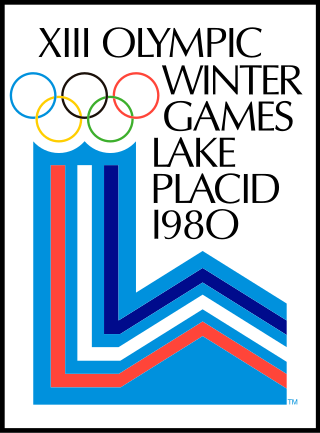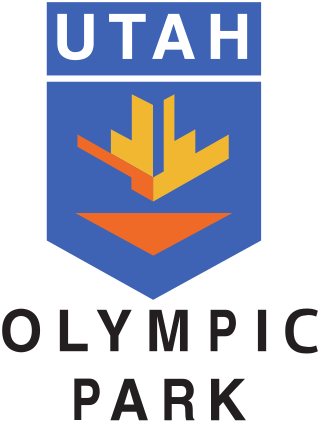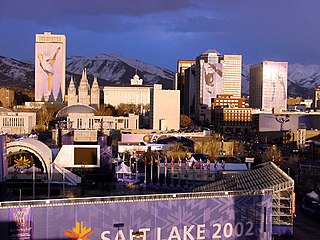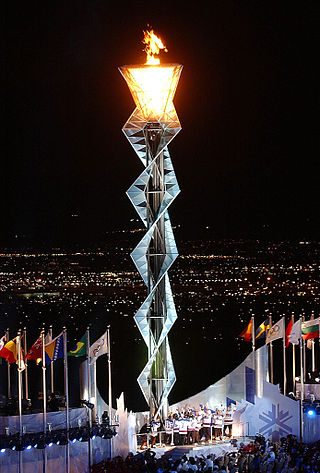
The Winter Olympic Games, also known as the Winter Olympics, is a major international multi-sport event held once every four years for sports practiced on snow and ice. The first Winter Olympic Games, the 1924 Winter Olympics, were held in Chamonix, France. The modern Olympic Games were inspired by the ancient Olympic Games, which were held in Olympia, Greece, from 776 BCE to 394 CE. The Baron Pierre de Coubertin of France founded the International Olympic Committee (IOC) 1,500 years later in 1894, leading to the first modern Summer Olympic Games in Athens, Greece in 1896. The IOC is the governing body of the Olympic Movement, with the Olympic Charter defining its structure and authority. The original five Winter Olympic Sports were bobsleigh, curling, ice hockey, Nordic skiing, and skating. The Games were held every four years from 1924 to 1936, interrupted in 1940 and 1944 by World War II, and resumed in 1948. Until 1992, the Summer Olympic Games and the Winter Olympic Games were held in the same year. A decision to change this was made in 1986, when during the 91st International Olympic Committee session, IOC members decided to alternate the Summer Olympic Games and the Winter Olympic Games on separate four-year cycles in even-numbered years. Also, at that same congress it was decided that 1992 Winter Olympics would be the last to be held in the same year as the Summer Games and that to change the rotation, the games that would be held in 1996 would be brought forward by two years, being scheduled to 1994. After those games, the next were to be held in 1998 when the four-year Olympic Cycle resumed.

The 2002 Winter Olympics, officially the XIX Olympic Winter Games and commonly known as Salt Lake 2002, were an international winter multi-sport event that was held from February 8 to 24, 2002, in and around Salt Lake City, Utah, United States.

The 1980 Winter Olympics, officially the XIII Olympic Winter Games and also known as Lake Placid 1980, were an international multi-sport event held from February 13 to 24, 1980, in Lake Placid, New York, United States.

The 1932 Winter Olympics, officially known as the III Olympic Winter Games and commonly known as Lake Placid 1932, were a winter multi-sport event in the United States, held in Lake Placid, New York, United States. The games opened on February 4 and closed on February 13. It was the first time the Winter Games were held outside of Europe and the first of four Winter Olympics held in the United States; Lake Placid hosted again in 1980.

The 1976 Winter Olympics, officially known as the XII Olympic Winter Games and commonly known as Innsbruck 1976, were a winter multi-sport event celebrated in Innsbruck, Austria, from February 4 to 15, 1976. The games were awarded to Innsbruck after Denver, the original host city, withdrew in 1972. This was the second time the Tyrolean capital had hosted the Winter Olympics, having first done so in 1964.

The 2002 Winter Paralympics, the eighth Paralympic Winter Games, were held in Salt Lake City, Utah, United States, from 7 to 16 March 2002. A total of 416 athletes from 36 nations participated. They were the first Winter Paralympics in the American continent. These were the first Paralympic Winter Games for Andorra, Chile, China, Croatia, Greece, and Hungary. Ragnhild Myklebust of Norway won five gold medals in skiing and biathlon, becoming the most successful Winter Paralympic athlete of all time with 22 medals, 17 of them gold.
The 2002 Olympic Winter Games bid scandal was a scandal involving allegations of bribery used to win the rights to host the 2002 Winter Olympics in Salt Lake City, Utah, United States. Prior to its successful bid in 1995, the city had attempted four times to secure the games, failing each time. In 1998, members of the International Olympic Committee (IOC) were accused of taking gifts from the Salt Lake Organizing Committee (SLOC) during the bidding process. The allegations resulted in the expulsion of several IOC members, and the adoption of new IOC rules. Although nothing strictly illegal had been done, it was felt that the acceptance of the gifts was morally dubious. Soon four independent investigations were underway: by the IOC, the United States Olympic Committee (USOC), the SLOC, and the United States Department of Justice. Both Tom Welch and David Johnson resigned their posts as the head of the SLOC. Many others soon followed. The Department of Justice filed fifteen charges of bribery and fraud. Investigations were also launched into prior bidding process by other cities, finding that members of the IOC received gifts during the bidding process for both the 1998 Winter Olympics and 2000 Summer Olympics.

Australia competed at the 2002 Winter Olympics in Salt Lake City, Utah, United States, winning its first two gold medals in the Winter Games. It was the nation's best performance at the Winter Games prior to the 2010 Winter Olympics in Vancouver.

The Olympic and Paralympic Cauldron Plaza is located outside the southwestern corner of Rice–Eccles Stadium on the campus of the University of Utah in Salt Lake City, Utah. During the 2002 Winter Olympics and Paralympics, the stadium was known as Rice-Eccles Olympic Stadium and hosted the Opening and Closing Ceremonies. Currently, the plaza contains the 2002 Winter Olympics cauldron surrounded by several plaques displaying photographs and information related to the 2002 Games.

The Utah Olympic Oval is an indoor speed skating oval located 14 miles (23 km) southwest of Salt Lake City, in Kearns, Utah. The Oval was built for the 2002 Winter Olympics and it hosted the long-track speed skating events for the 2002 games, a role it is expected reprise for the 2034 Winter Olympics.

The Utah Olympic Park is a winter sports park built for the 2002 Winter Olympics, and is located in Summit County northwest of Park City, Utah, United States. During the 2002 games the park hosted the bobsleigh, skeleton, luge, ski jumping, and Nordic combined events. It still serves a training center for Olympic and development level athletes.
Joan Guetschow is an American Olympic biathlete. She competed at the Olympic Games in 1992 in Albertville, France, and 1994 in Lillehammer, Norway. She finished 17th in Lillehammer in the 15 km distance event, hitting 19/20 targets. She also competed for her country in the World Championships in Lahti in 1991 and Borovetz in 1993. She was the overall winner of the first-ever Olympic Trials for the U.S. Women's Olympic Biathlon Team in 1992. In 1994 she also won Olympic Trials.

Powder, Copper and Coal were the official mascots of the 2002 Winter Olympics and Otto was the official mascot of the 2002 Winter Paralympics, both held in Salt Lake City, United States.

The 2002 Winter Olympic Games were held in and around Salt Lake City, United States from February 8 to 24, 2002, and the Paralympics from March 7 to 16, 2002. The sporting events were held in ten competitive venues, while non-competitive events, such as the opening ceremony, were held in six other venues. Three venues were also created for training purposes. All Olympic venues were scattered throughout Northern Utah and the Wasatch Front.

Australia competed at the 2002 Winter Paralympics in Salt Lake City, Utah, United States from 8 March to 19 March 2002. The Salt Lake Paralympics are the eighth such winter games, the first Winter Paralympics ever in North America and the first Winter Paralympics ever set up by an Olympic organizing committee. Although many of the Paralympic expenses were covered by dual planning with the Olympics, organizers still spent about $60 million on the Paralympics, including $5 million on the opening and closing ceremonies. The Salt Lake Games featured 92 events across four sports: alpine skiing, biathlon, cross-country, and ice sledge hockey. The 36 competing countries sent a total of 416 participants. Australia was represented by six male alpine skiers: Peter Boonaerts, Bart Bunting, Michael Milton, Scott Adams, Cameron Rahles-Rahbula, and Mark Drinnan. The medal haul was seven, consisting of six gold and one silver. Australia finished 8th overall in the gold and total medal count, making it the country's most successful Winter Games in terms of gold medals.

The opening ceremony of the 2002 Winter Olympics took place at the Rice-Eccles Olympic Stadium in Salt Lake City, Utah, United States, on 8 February 2002.
The 2034 Winter Olympics, officially known as the XXVII Olympic Winter Games 2034 and branded during the bid as Salt Lake City–Utah 2034, is an upcoming international multi-sport event scheduled to take place in the Salt Lake City metropolitan area of Utah in the United States, between February 10–26, 2034. The Salt Lake City–Utah bid was elected at the International Olympic Committee's (IOC) 142nd Session in Paris on July 24, 2024, two days before the start of the 2024 Summer Olympics.
The selection of the host for the 2030 Winter Olympics saw a new process being introduced from 2019. The bidding process saw the French Alps, France, chosen as the preferred and expected host that was officially certified by the IOC before the 2024 Summer Olympics on 24 July 2024 in Paris, France.

The selection of the host for the 2034 Winter Olympics saw a new process being introduced from 2019. The bidding process saw the Salt Lake City and the state of Utah in the United States, chosen as the preferred and expected host that was officially certified by the IOC before the 2024 Summer Olympics on 24 July 2024 in Paris, France.














